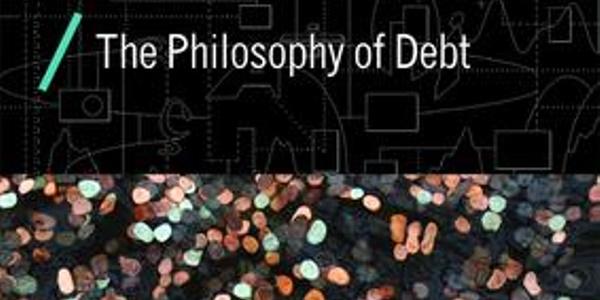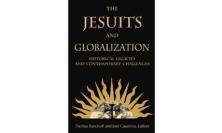It is obvious to any family that an individual should ideally never spend more than she earns and should avoid getting into debts she cannot repay. It is equally obvious that any person who has taken on a debt has an obligation to pay it back. When the same oughts and obligations are applied by analogy to businesses, banks and nations, they lead to a familiar conclusion: nations are obliged to undertake whatever structural adjustments are necessary to enable them to pay back their debts, and governments have a duty to impose austerity on their citizens so that they can balance their books.
Alexander Douglas’s careful reflections – historical, semantic, logical and practical – suggest that the ‘obvious’ point of view is at best misleading and at worse pernicious, especially in a global economic system that is in its essence dependent on government-managed debt.
The book is broken into 37 agreeably short and clearly written chapters, grouped under four main themes. The first section explores the language of debt and credit, owning and owing, carefully revealing how any simple equation of debt and duty is mistaken, though often politically advantageous to those with financial power over others. Importantly, if the duty to pay a debt is ethical, then the ‘ought implies can’ rule applies: we cannot be morally obliged to do what it is not in our power to do. Thus any obligation to pay is limited by capacity to pay. This alone might instantly change the way we think about developing nation debts, where interest has often raised the debt not only far higher than the original loan but beyond any reasonable capacity to pay.
Ethically, the obligation to pay a debt may shrink to the obligation to pay what can reasonably be required. Creditors, however, may have prudent reasons not to acknowledge this. One person’s debt reduction is another person’s asset loss, and for banks at least that can be critical. There is a similar context-dependency in the relationship of trust, expectation and obligation implied by the language of ‘credit’ itself. What obligations arise from a loan, for instance, if the creditor was already certain at the time of the loan that it would not be able to be repaid?
All of this leads to the question of the source of the ethical obligation to pay debts. Douglas’s working hypothesis blends arguments of Hume and Anscombe, suggesting that the institution of debt may be socially useful, because it ‘allows idle money to be put to good use’. If this were so, the obligation to honour debts might derive from the ethical obligation to support an institution that is necessary for the common good. This raises the further question of whether debt in its every form actually qualifies as just such an institution serving the common good. The second part of the book looks for an answer from the real history of debt.
Douglas looks at debt in the ancient world, with its pattern of high interest loans to subsistence farmers in times of crisis (war, drought etc), leading to loss of possessions (and thus earning-potential) and the sale of family members into various forms of slavery. He also notes the need for periodic amnesties (like the Biblical Jubilee) where debts were cancelled and slaves returned to their families, not simply as a matter of justice, but in order to prevent revolution. Out of this experience – the exploitation of the poor in forcing them to borrow to survive a crisis beyond their control (forced debt) – springs the ancient condemnation of usury, from the criticisms of Aristotle to the censures of medieval church councils. Here there is very limited evidence for the common utility of the institution of debt, and thus limited grounds for any absolute moral obligation to pay in full all interest-based loans.
The medieval position contrasts with the vigorous defence of usury by Jeremy Bentham and his contemporaries in the 18th century. The common good is served by the productive activities of entrepreneurs, who need start-up money for those activities, and that money can often only be borrowed from others. If production goes well, the entrepreneur will make a profit and pay back the loan out of it. The lender charges high interest partly as an insurance against the failure of the project. Here indeed there seems to be a virtuous effect of the institution of debt. Douglas notes, however, that such ‘productive’ usury is very different in kind from the ‘extractive’ usury that was condemned by church councils and has been the cause of human misery and social disruption throughout the millennia. He observes that, historically, governments have had to take positive action to channel debt into productive, rather than extractive activities. He also notes that the heyday of productive lending may be long past, modern lending being predominantly within the financial sector and for property purchase.
All of this suggests an important distinction between the usury of productive debt and the ‘abusury’ of extractive and forced debt. Bearing this distinction in mind will allow us to see how far the institution of debt can (and cannot) generate obligations to uphold it.
Sometimes usury does allow for idle savings to be put to good uses. But sometimes it allows them to be put to bad uses. Chief among the latter is the activity of rich usurers, with savings to spare, lending to the very poor at rates that ultimately ensure that they will end up even poorer. The very poor will nevertheless take the loans on these terms out of desperation.
Thus debt as an institution is morally ambivalent. Clearly there is a good, mutually beneficial set of debt-related practices. But we cannot insist on an absolute obligation to pay debts, without considering the quality and effects of all debt-related activity in society at large.
Douglas goes on to an apparent digression on money. In fact this discussion establishes the unique role of sovereign government in the social web of debt, production and social security, which derives from the nature of money. After eliminating unsatisfactory models of the origin of money (a medium of exchange developed through barter, or simply whatever anyone happens to believe is money) he argues that money is best understood as debt, IOUs that come to be accepted in exchange for goods or services. The reason that one set of IOUs comes to be a universal unit of exchange, a currency, is that this set of IOUs is issued by a sovereign government and accepted back in payment of taxes. Since everyone pays taxes, it is in everyone’s interest to hold these IOUs and they become favoured candidates for a reliable and universal medium of exchange.
In 1931 it came as a surprise to the British government to discover that it could come off the gold standard without the pound collapsing. But, says Douglas, ‘Only when the gold promise ceased to be honoured did the explanation become clear: the paper notes themselves were acceptable for tax payments, and this gave them a value of their own, independent of their redeemability for anything else.’ This has radical consequences for the way we think about government debt.
…the governments of the United States, the United Kingdom, Japan and any other country that operates a floating foreign exchange rate system are entirely unconstrained in the volume of currency they can issue. A government of this sort can cause inflation if it issues more money than people wish to hold. And…it can choke off production and bring about unemployment if it fails to issue as much money as people wish to hold. But it cannot become insolvent. It cannot go bankrupt. It cannot run out of whatever it promises to honour its IOUs, for it promises nothing besides more IOUs.
In particular, this sets governments apart from those issuers of IOUs which are the other main source of money: the private banks. The latter’s IOUs are redeemable in currency at a fixed rate and thus an individual bank issues more IOUs than it has deposits at its peril. A bank can become insolvent. In fact, however, central banks habitually supply reserves of money to banks in order to protect the payments system, since the vast majority of payments are made through the transfer of bank deposits (that is, of bank IOUs) rather than currency. Thus together, government and banks are responsible for the money supply that alone enables production to expand, but which, if mishandled, leads to ‘abusury’ and extractive debt.
The final two parts of the book explore the political consequences of this insight, beginning with the (perhaps slightly depressing) observation that, ‘capitalists will not produce anything unless there is money to be made by doing so’. This means that whether or not there is production will depend not on the needs of society or the availability of resources, but the availability of money for accumulation.
Capitalist production is… typically undertaken with the motive of accumulating [the IOUs of banks and governments]. If governments and banks fail to issue a growing number of IOUs – if that is they fail to emit new debt – then net accumulation is impossible and production will not expand… it is debt that allows anything new to be produced. Debt is the motor; markets, bargaining and government action are the steer.
These claims now offer a justification for the institution of debt and the obligations that go with it as a condition of the common good. Insofar as the capitalist system produces goods of food, shelter and medicine, and that system is driven by debt, the institution of debt deserves universal support. However, the obligation generated is now not only to pay debts, but also to emit debts. Since sovereign governments are the only entities capable of emitting more IOUs than they redeem, this gives them a unique role in an economy that cannot function without productive debt.
The remainder of the book explores the details of the relationship between government, banks and economy, challenging the widely held (and proclaimed) belief that government debt must always be reduced at all costs. Douglas discusses the relationship between government bonds and money supply, and analyses different models for the causes of inflation. He explores the things that can trip a national economy into the spiral of extractive lending and rising prices that go with inflation, and spells out remedies that lie within a government’s control. He notes in the process that a one-eyed understanding of debt and duty often ends up punishing the wrong people in times of financial crisis.
He concludes, ‘thus the government should run a deficit that is large enough to supply the desired accumulation of capitalists employing the full productive potential of the economy and not so large as to generate inflation it cannot control by means other than tax-increases and spending cuts.’ When a government fails to recognise this,
…when its deficit is too small – it creates effects that visit anxiety, stress, deprivation, and ill-health not only on the most vulnerable citizens of a nation, but upon the vast majority who work for a living. These conditions are due almost entirely to a policy choice by the government: its choice to ‘close the deficit gap’, or not to open it wide enough.
Contrary to current belief and practice, there are intelligent and beneficial uses of deficit spending in hard times. One such might be to employ the jobless in socially useful tasks at the living wage, until such time as production and the job market recover.
In the final section Douglas adds notes on immigration and labour, the foreign trade balance and possible Marxist objections to his analysis, before offering a final summary of his main points.
This highly accessible contribution to Routledge's ‘Economics as Social Theory Series’ challenges the reader to think differently about debt and abandon some comfortable assumptions. It does not set out to replace the current economic system, but offers powerful arguments for making public policy fairer. As such it is an invaluable contribution to the re-humanising of reflection on economic processes.
The reviewer, John Moffatt SJ, assists in the Hurtado Jesuit Centre in Wapping, East London. He is the author of The Resurrection of the Word: A Modern Quest for Intelligent Faith (The Way) and Letting the Porcupine out of the Bottle.






